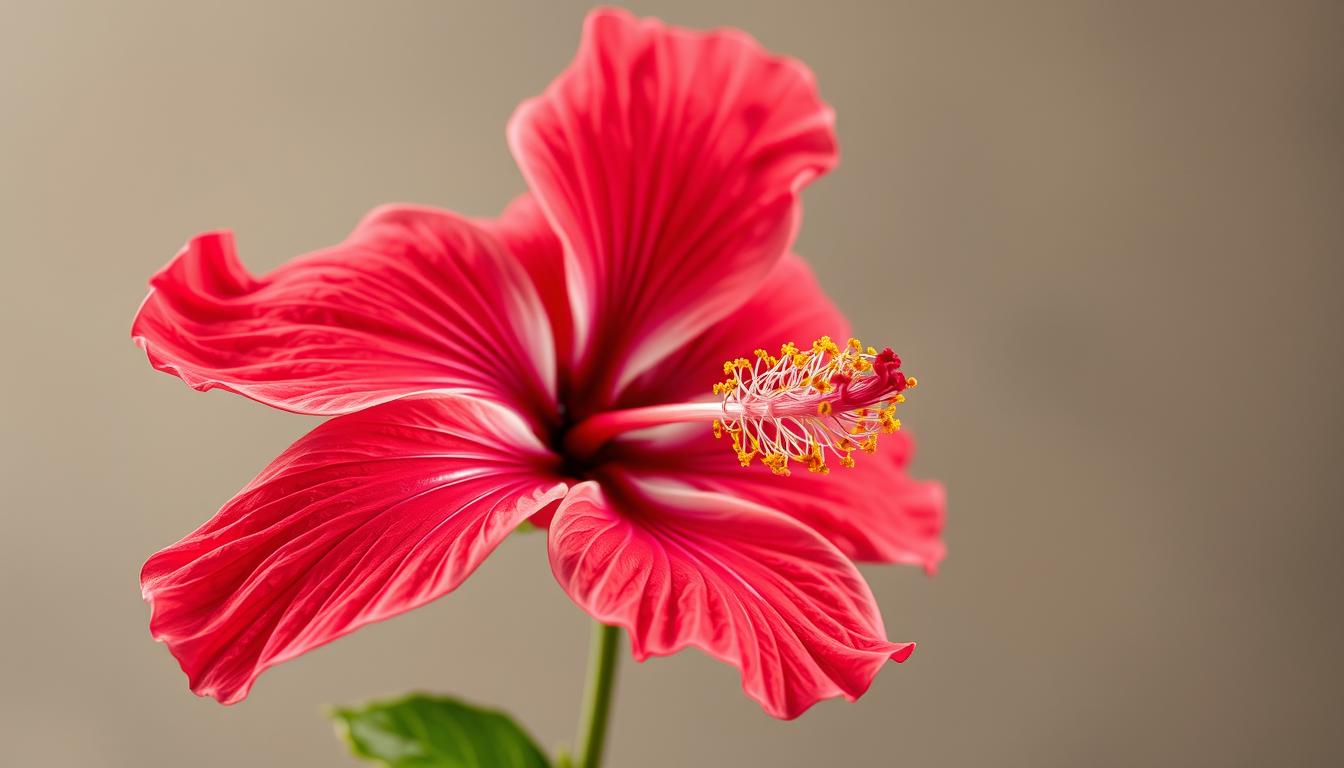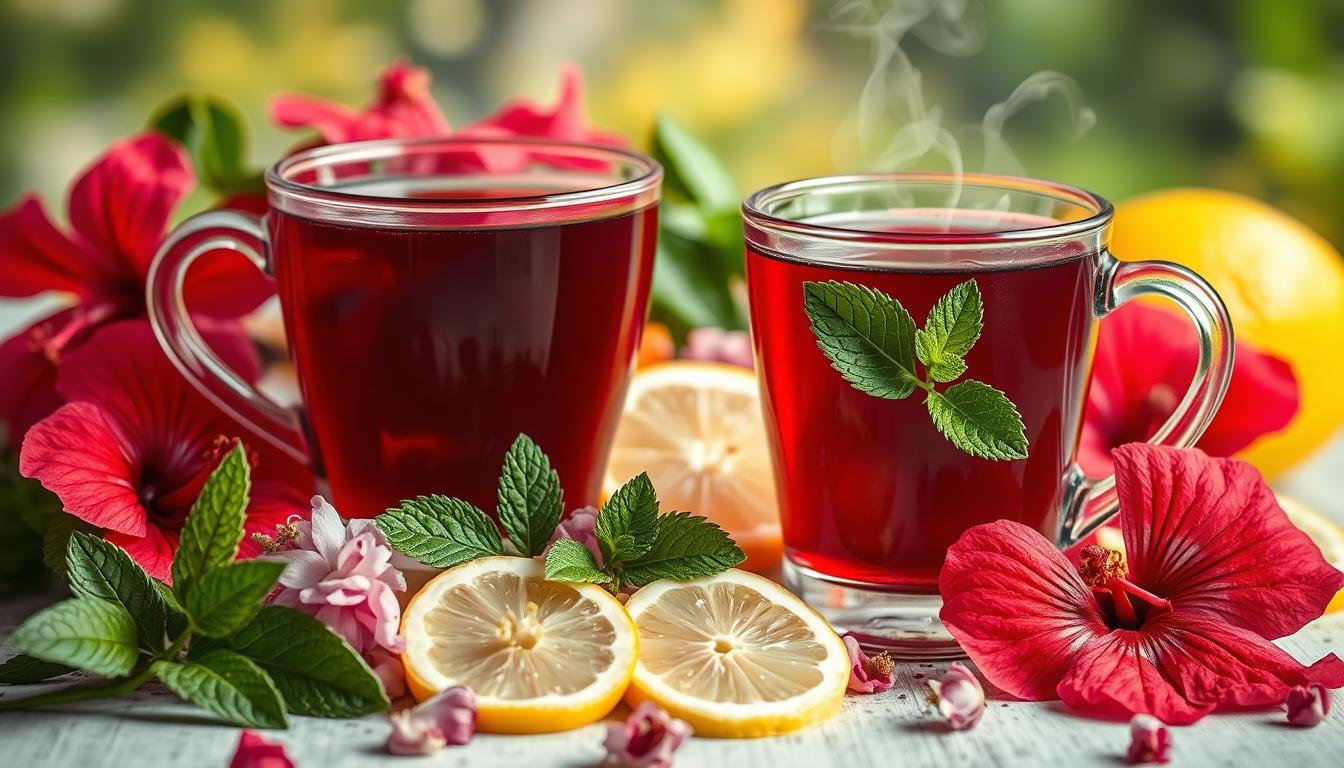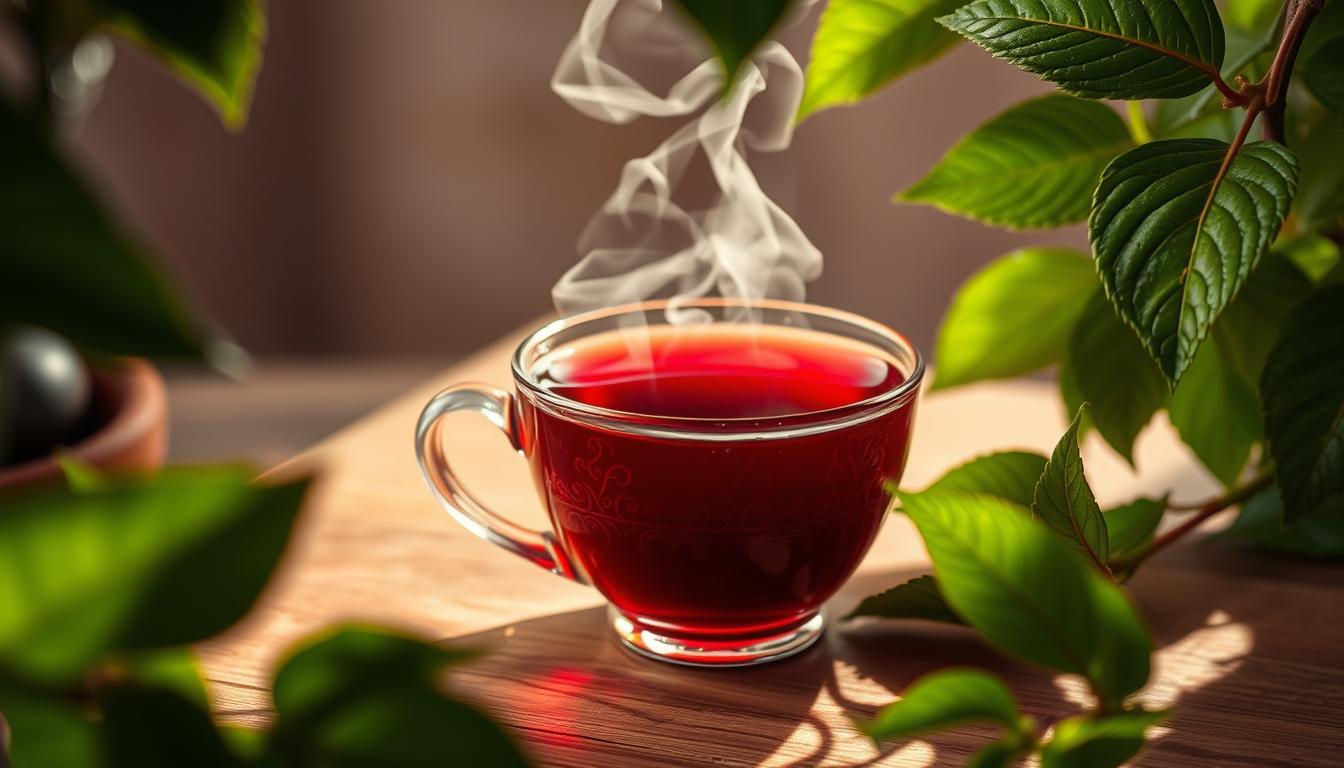Did you know that over 80% of pregnant women seek caffeine-free alternatives to their daily beverages? Herbal teas often top the list, but not all are created equal. One popular choice, hibiscus tea, sparks debate among health experts and expecting mothers alike.
Pregnancy brings unique dietary challenges. Avoiding alcohol, raw fish, and certain medications is common advice. Herbal teas, like hibiscus, are often seen as a safer option. Rich in antioxidants, this plant-based drink may support heart health and weight management. However, its effects on pregnancy remain unclear.
Animal studies suggest potential risks, such as hormonal changes or complications. While these findings don’t directly apply to humans, they raise important questions. Before sipping that cup, it’s essential to weigh the benefits against the unknowns.
Key Takeaways
- Herbal teas are a popular caffeine-free choice for pregnant women.
- Hibiscus tea offers antioxidant benefits but lacks clear safety evidence.
- Animal studies highlight potential risks, including hormonal effects.
- Consulting a doctor before consuming herbal teas is crucial.
- Balance potential health benefits with safety concerns during pregnancy.
Understanding Hibiscus Tea: Origins and Uses
From tropical gardens to teacups, hibiscus has made its mark worldwide. This vibrant flowering plant, scientifically known as Hibiscus sabdariffa, thrives in warm climates. Its dried calyces, the part used to brew tea, are packed with flavor and nutrients.

Native to Africa, hibiscus grows abundantly in tropical and subtropical regions. Countries like Egypt, Sudan, and Mexico have long embraced this plant. Its versatility extends beyond beverages, with uses in folk remedies, paper, and even rope production.
What is Hibiscus?
Hibiscus belongs to the mallow family, known for its large, colorful blooms. The calyx, the part beneath the petals, is harvested and dried for tea. Rich in antioxidants, it offers a tangy flavor and a host of potential health benefits.
Traditional and Cultural Uses
Across cultures, hibiscus has played a significant role. In Egypt, it’s brewed into a drink called karkade, often served hot or cold. In West Africa, it’s used in rituals and folk medicine to support wellness. Modern research highlights its antioxidant properties, making it a popular choice for those seeking natural health benefits.
Whether enjoyed as a refreshing drink or used in traditional practices, hibiscus continues to captivate people worldwide. Its rich history and versatility make it a fascinating subject for both tea lovers and health enthusiasts.
Health Benefits and Risks of Hibiscus Tea
Rich in nutrients and flavor, hibiscus has long been celebrated for its health benefits. This vibrant plant offers more than just a refreshing drink. Its bioactive compounds, like polyphenols, contribute to its antioxidant properties. These nutrients play a key role in supporting overall wellness.

Antioxidant and Nutritional Properties
Hibiscus is packed with antioxidants, which help combat oxidative stress in the body. These compounds protect cells from damage caused by free radicals. Studies suggest that regular consumption may improve liver health and reduce inflammation.
Nutritionally, hibiscus is a source of vitamins and minerals. It contains vitamin C, iron, and calcium, which are essential for maintaining good health. This makes it a popular choice for those seeking natural ways to boost their nutrient intake.
Cardiovascular and Weight Management Effects
Research highlights hibiscus’s potential to support heart health. Its extracts have been shown to lower blood pressure and manage cholesterol levels. A 2021 meta-analysis found that daily consumption could significantly reduce hypertension.
For weight management, hibiscus may help by reducing fat accumulation. Its diuretic properties can also aid in water retention. However, the variability in extract concentration and study designs calls for cautious interpretation of these findings.
While the benefits are promising, it’s important to consider potential risks. Some studies suggest that excessive consumption may lead to hormonal imbalances. Always consult a healthcare provider before making it a regular part of your diet.
is hibiscus tea safe during pregnancy
Animal research provides insights into the potential risks of hibiscus consumption. Studies on pregnant rats have raised concerns about delayed puberty in offspring and increased miscarriage rates. These findings suggest that the plant’s emmenagogue properties might affect hormone levels.
Animal Studies and Research Findings
Research involving pregnant rats has shown that hibiscus extracts may lead to delayed sexual development in offspring. Maternal malnutrition was also observed in some cases. These results highlight the need for caution when considering this herbal drink during pregnancy.
Concentrated extracts used in studies differ from the lower concentrations found in commercial products. This distinction is important when interpreting the findings. While animal studies provide valuable insights, their direct application to humans remains unclear.
Hormonal Implications and Pregnancy Risks
Hibiscus contains phytoestrogens, which can influence hormone levels. These compounds may stimulate blood flow to the uterus, potentially triggering early labor or miscarriage. Such effects underscore the importance of moderation and medical consultation.
While the health benefits of hibiscus are well-documented, its safety during pregnancy requires further investigation. “The conflicting data calls for a balanced approach,” says one researcher. Always consult a doctor before incorporating this herbal drink into your routine.
Pregnancy Concerns: Fetal Development and Maternal Health
Pregnancy demands careful dietary choices, especially when it comes to herbal beverages. While many options are available, not all are suitable for every stage of this critical period. Research highlights specific concerns related to fetal development and maternal health, particularly with certain herbal drinks.
Risks of Delayed Puberty and Miscarriage
Animal studies have raised concerns about the effects of certain herbal compounds on pregnancy. For example, research from 2008, 2013, and 2016 linked hibiscus extracts to delayed puberty in offspring. These findings suggest that the plant’s active ingredients might interfere with hormonal development.
Another significant risk involves the potential for miscarriage. Studies indicate that hibiscus may act as an emmenagogue, stimulating blood flow to the uterus. This effect could increase the likelihood of early labor or pregnancy loss. While these results are based on animal models, they underscore the need for caution.
Hormonal Implications and Mechanisms of Action
Hibiscus contains phytoestrogens, compounds that mimic estrogen in the body. These substances can influence hormone levels, potentially disrupting normal fetal development. The mechanisms behind these effects are still under investigation, but they highlight the complexity of herbal interactions during pregnancy.
It’s important to note that most of these studies used concentrated extracts, which differ from the lower concentrations found in commercial products. This distinction is crucial when interpreting the findings and applying them to human pregnancy.
| Study Year | Findings | Implications |
|---|---|---|
| 2008 | Delayed puberty in offspring | Potential hormonal interference |
| 2013 | Increased miscarriage risk | Emmenagogue effect on uterus |
| 2016 | Maternal malnutrition observed | Nutritional concerns during pregnancy |
While the health benefits of herbal drinks are well-documented, their safety during pregnancy requires careful evaluation. Always consult a healthcare provider before incorporating any new beverage into your routine. Balancing potential benefits with known risks is essential for ensuring both maternal and fetal well-being.
Herbal Tea Alternatives and Safety Guidelines During Pregnancy
Herbal teas offer a soothing escape, but not all are suitable for expecting mothers. While some blends provide comfort and nutrients, others may pose risks. Understanding your options can help you make informed choices.
Safer Herbal Tea Options
For those seeking alternatives, ginger and rooibos are excellent choices. Ginger, known for its anti-nausea properties, can ease morning sickness. Rooibos, a caffeine-free option, is rich in antioxidants and gentle on the stomach.
Other safe options include lemon balm and nettle leaf. Lemon balm promotes relaxation, while nettle provides essential vitamins like iron and calcium. Always opt for blends with transparent ingredient lists to avoid unwanted additives.
Consulting with a Healthcare Provider
Before incorporating any herbal drink, consult your doctor. “Personalized advice ensures safety for both mother and baby,” says a healthcare expert. This step is crucial, especially if you have underlying health conditions.
Organizations like La Leche League International recommend avoiding certain herbs, such as peppermint and chamomile, during the first trimester. Your provider can guide you toward blends that align with your unique needs.
By prioritizing safety and transparency, you can enjoy a warm cup of herbal tea with confidence. Always remember, moderation and professional guidance are key.
Scientific Research and Expert Insights on Hibiscus
Scientific research on hibiscus offers valuable insights into its effects on health. Recent studies and reviews have explored its potential benefits and risks, particularly in areas like cardiovascular health and weight management. While findings are promising, limitations in research design call for cautious interpretation.
Review of Clinical Trials and Reviews
Clinical trials have highlighted the plant’s ability to lower blood pressure and cholesterol. A 2021 meta-analysis found that daily consumption could significantly reduce hypertension. These results suggest that hibiscus may support heart health, making it a popular choice for those seeking natural remedies.
Weight management is another area of interest. Some studies indicate that hibiscus extracts may reduce fat accumulation and aid in water retention. However, the variability in extract concentration and study designs means these findings should be interpreted with care.
Limitations of Current Evidence
Despite positive outcomes, current research has notable limitations. Many studies rely on small sample sizes, which can affect the reliability of results. Additionally, much of the evidence comes from animal models, making it difficult to directly apply findings to humans.
Expert insights emphasize the need for larger, more comprehensive trials. “While early findings are encouraging, we need robust human studies to confirm these effects,” says a leading researcher. This cautious approach ensures that recommendations are based on solid evidence.
| Study Focus | Key Findings | Limitations |
|---|---|---|
| Cardiovascular Health | Lowers blood pressure and cholesterol | Small sample sizes |
| Weight Management | Reduces fat accumulation | Variability in extract concentration |
| Animal Studies | Potential hormonal effects | Limited applicability to humans |
In conclusion, while hibiscus shows potential in various health areas, gaps in research remain. Further studies are essential to validate early findings and provide clearer guidance for its use.
Navigating Product Labels and Ingredient Transparency
Understanding what’s in your cup starts with reading the label. Herbal blends often combine multiple ingredients, and not all are clearly disclosed. For pregnant women, this lack of transparency can pose risks. Knowing each component ensures safety and informed choices.
Understanding Herbal Tea Blend Ingredients
Herbal drinks like hibiscus tea may include other components, such as raspberry or rosehip. These additions can enhance flavor but may not always be listed prominently. For expecting mothers, certain compounds in blends could trigger unwanted effects.
Common recipes often mix hibiscus with ginger or chamomile. While these combinations are popular, they may not suit everyone. Always check the label for a full list of ingredients to avoid potential risks.
Here are some tips for navigating product labels:
- Look for clear ingredient lists without vague terms like “natural flavors.”
- Verify the presence of hibiscus or other herbs you may need to avoid.
- Choose brands with transparent labeling and third-party testing.
- Ask questions at the point of purchase to clarify any uncertainties.
Reputable brands prioritize transparency, making it easier to trust their products. Consulting a doctor before trying new blends is essential. They can provide personalized advice based on your health needs.
| Common Ingredients | Potential Effects | Safety During Pregnancy |
|---|---|---|
| Hibiscus | May influence hormone levels | Consult a doctor |
| Ginger | Eases nausea | Generally safe |
| Raspberry Leaf | Supports uterine health | Avoid in early stages |
| Chamomile | Promotes relaxation | Use with caution |
By prioritizing ingredient transparency, you can enjoy herbal drinks with confidence. Always remember, informed choices lead to better health outcomes for both mother and baby.
Conclusion
Herbal drinks like hibiscus tea have sparked curiosity and caution among expecting mothers. While its antioxidant properties and potential health benefits are appealing, animal studies highlight significant risks. These include hormonal effects and possible complications for fetal development.
Given the lack of conclusive human research, avoiding hibiscus tea is the safest choice. Instead, consider alternatives like ginger or rooibos, which are gentler and widely recommended. Always consult your healthcare provider before making any dietary changes.
Balancing the promising benefits with the potential risks ensures a safer approach. By staying informed and seeking professional advice, you can make confident decisions for both your health and your baby’s well-being.

